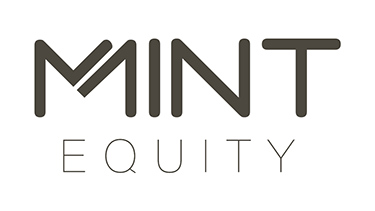The New South Wales government recently changed tax rules for first-time homebuyers, giving them more flexibility in terms of how their taxation works. If you’re wanting to buy a property in New South Wales, it helps to know what this flexibility entails – including who is eligible for this, the benefits of each option, and what this means for you.
What is the First Home Buyer property tax choice?
Across New South Wales, first home buyers can now choose between two taxation options when you purchase a house with a value of up to $1.5 million. Specifically, you could pick either annual property tax via the First Home Buyer Choice government program or stamp duty, which hopes to increase home sales across the state by making the up-front cost more manageable.
Many people rely upon rental opportunities due to the difficulty of saving up over time to afford a property – by making stamp duty effectively optional, New South Wales denizens could purchase one two years sooner. This doesn’t interfere with pre-existing stamp duty concessions, which still apply.
Who is eligible for this tax flexibility?
This opportunity has comprehensive eligibility criteria, but the people who would benefit from this tax choice usually tick most, if not all, of these boxes already. To be eligible for annual property tax instead of stamp duty, the buyer (or buyers) must be over 18 with no experience owning an Australian property.
At least one buyer must also be a permanent Australian resident; this could be any state, not just New South Wales. The property value cannot exceed $1.5 million, and you have to move into the property within a year, and live there for at least six months. Subsequent buyers of the property still pay stamp duty unless eligible.
Which choice is right for me?
Property tax is an annual tax relating to the property’s land value, currently set at $400 plus 0.3% of land value; this rises alongside average annual income. For home buyers, this makes it a manageable alternative to stamp duty, which involves an additional upfront cost – around 4% of the property’s value.
To calculate the FHB Property Tax you can use the Service NSW First Home Buyer Property Tax Calculator.
Stamp duty might be beneficial for some who have the capital to circumvent this cost, and who would then be able to avoid long-term property taxes. However, many Australian citizens might be more comfortable paying property tax, especially as it allows them to buy the property much sooner on account of needing to save less.
If your property is under $800,000 in value, the choice may be more complex, as you’re eligible for concessions on stamp duty. You might also be able to acquire a First Home Owner’s Grant of $10,000, which could be a big help when saving. Whatever option you choose, extensively research to see which saves you the most money.
Ongoing FHB Property Tax may affect your borrowing capacity
As the First Home Buyer property tax choice is an ongoing property expense, lenders will need to incorporate the ongoing costs into your living expenses, which may have an impact on your borrowing capacity. It’s always worth discussing your options with an experienced mortgage broker before committing to paying stamp duty or the First Home Buyer Property Tax.
When you want to purchase your first property, you may benefit from a mortgage broker that negotiates with banks to help you get a good deal. Mint Equity has decades of experience in helping Australia’s first-time home buyers; for more on our services, get in touch today.
When does the scheme start?
Legislation to establish the property tax has been enacted and received assent on 11 November 2022.
Eligible first home buyers who sign a contract of purchase on or after 16 January 2023 will be able to opt into the property tax and will not be required to pay stamp duty, provided they choose to pay property tax before their purchase settles.
Eligible first home buyers who sign a contract of purchase between 11 November 2022 and 15 January 2023 will also be able to opt into the property tax:
For this group, applications to choose the property tax can be made at any time between 16 January 2023 and 30 June 2023.
If settlement occurs on or before 15 January 2023, they will need to pay stamp duty, and then apply for a refund of the stamp duty after 16 January.
If settlement occurs on or after 16 January 2023, and they have chosen property tax, they will not need to pay stamp duty.
Information on how to apply for the property tax will be made available soon.



